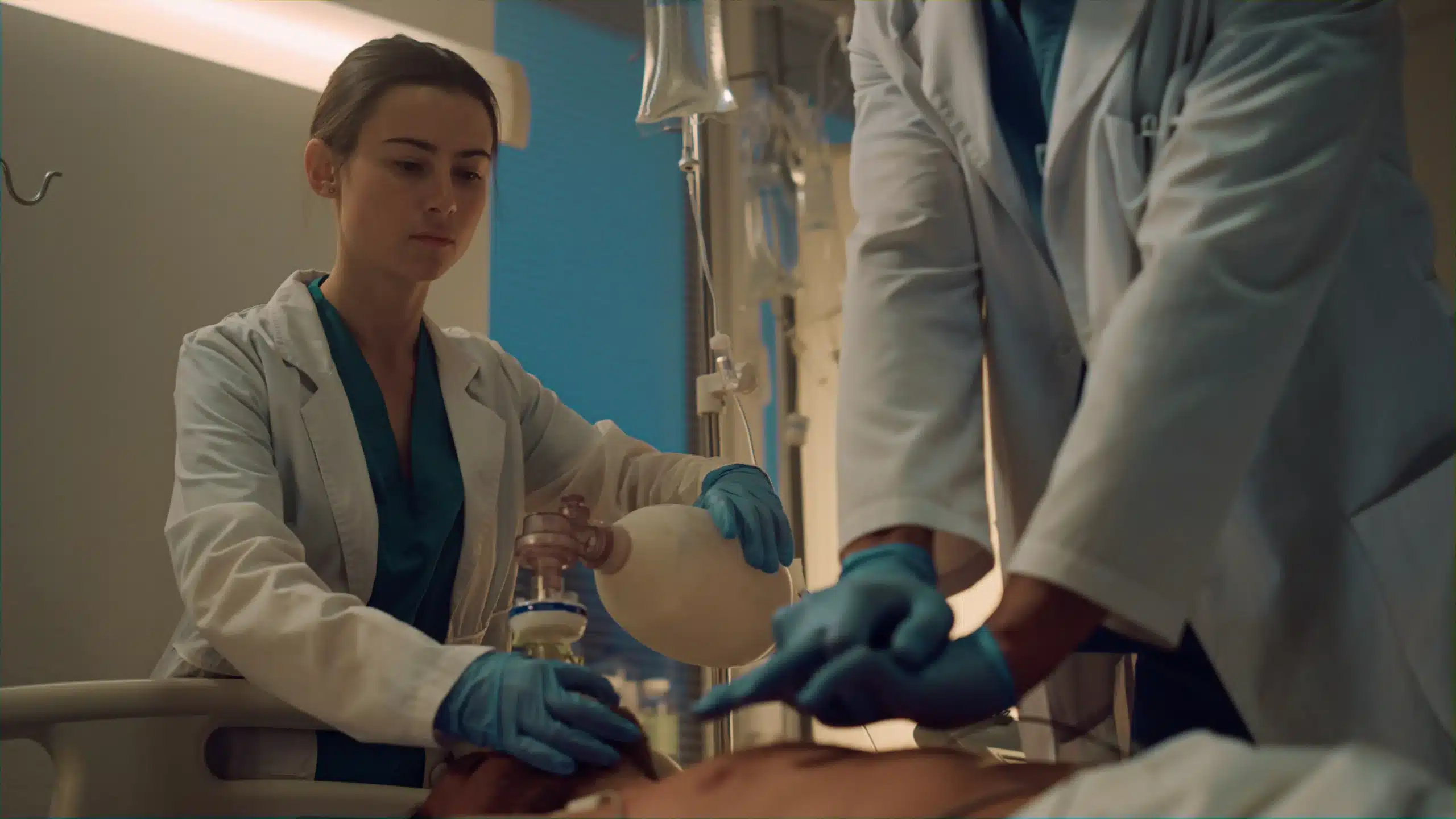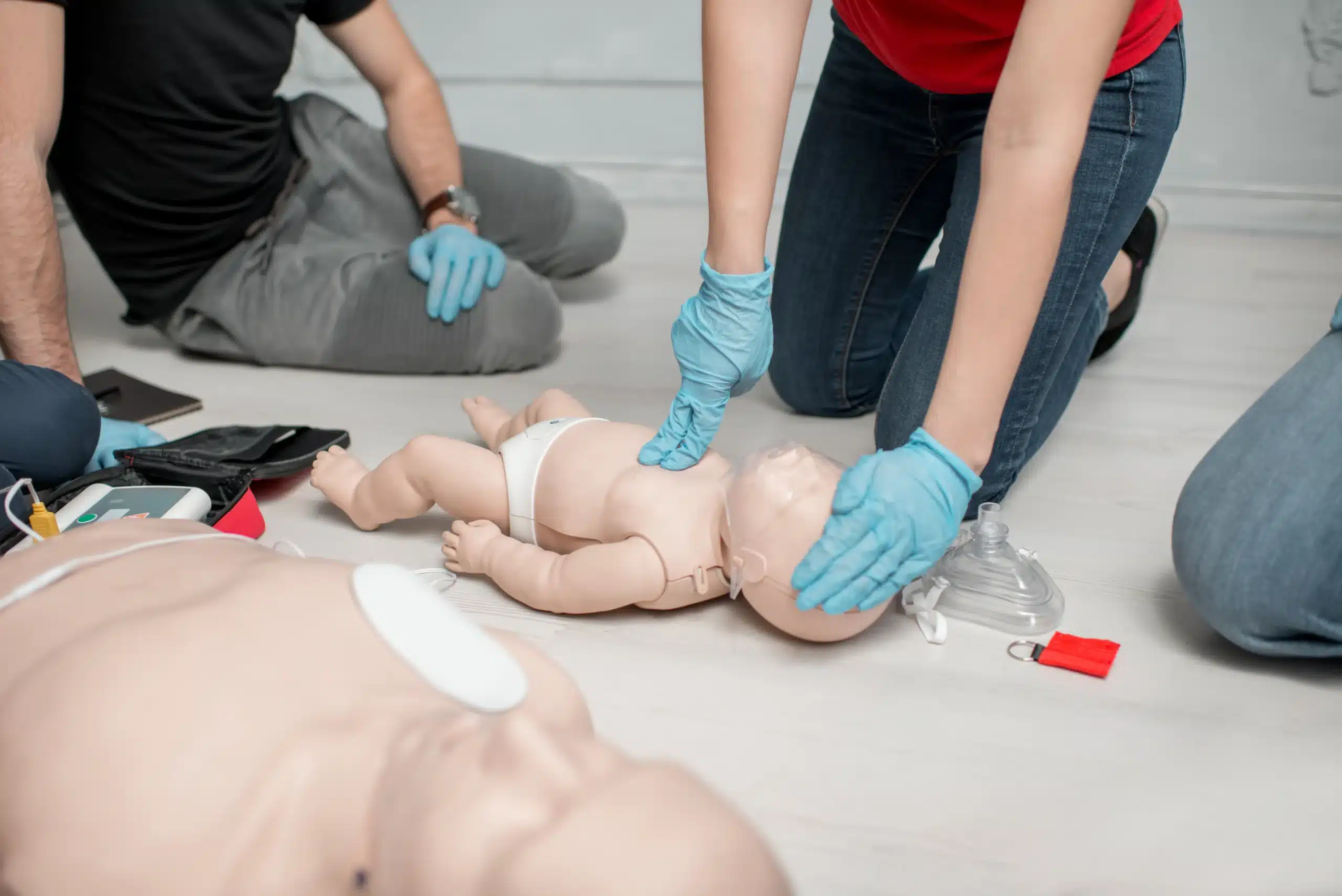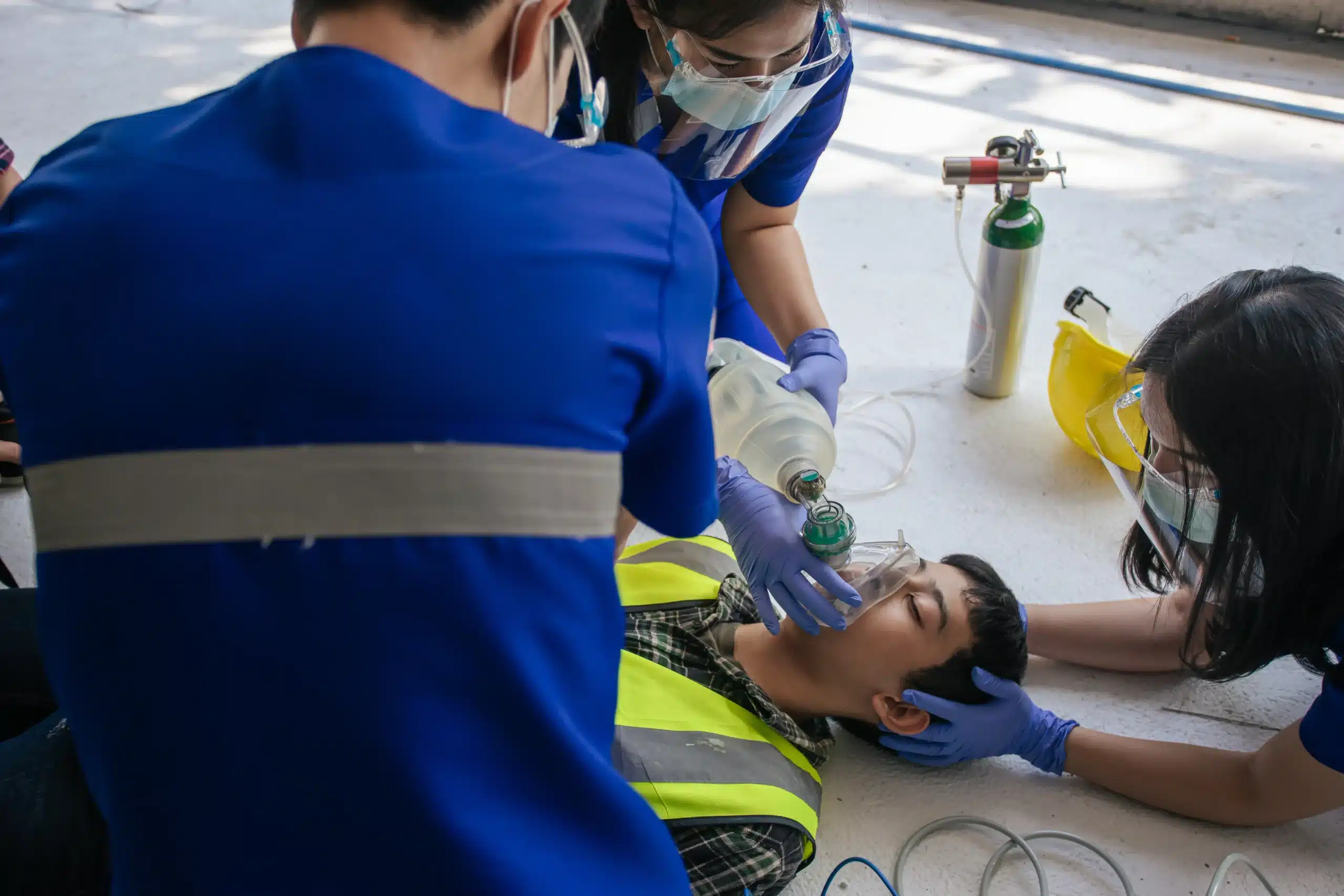Balancing a demanding healthcare career with continuing education can be challenging. PALS HeartCode recognizes this and offers a blended learning approach that combines online flexibility with essential hands-on training. If you’re a healthcare provider in Pittsburg seeking PALS HeartCode certification, this guide is for you. We’ll explore the program’s key features, discuss the benefits of blended learning, and provide practical tips for preparing for your course. We’ll also cover local training options for PALS HeartCode in Pittsburg, helping you find a provider that fits your schedule and learning style. Plus, we’ll offer insights into cost considerations, renewal processes, and strategies for retaining your skills long after you complete the course.
Key Takeaways
- PALS HeartCode blends online learning with hands-on practice: This flexible format lets you learn the material at your own pace and then demonstrate your skills in person.
- Find a PALS HeartCode course that fits your needs: Consider factors like location, cost, and schedule when choosing a provider in your area. Safety Training Seminars offers convenient courses in Antioch with a low price guarantee.
- Prepare for your PALS HeartCode training: Set aside dedicated study time for the online modules and review the material before your in-person skills session to maximize your learning.
What is PALS HeartCode?
PALS HeartCode Explained
PALS HeartCode is the American Heart Association’s (AHA) blended learning program for Pediatric Advanced Life Support. This approach combines online learning with in-person skills practice and testing. It offers a flexible way to learn the skills needed to respond to pediatric emergencies. The online portion allows you to learn at your own pace, then attend an in-person skills session at our Antioch location, conveniently serving Antioch, Brentwood, and Pittsburg. This format makes PALS HeartCode a convenient option for busy professionals. Learn more about our PALS HeartCode course.
Key Features and Benefits
The PALS HeartCode online modules cover essential topics using interactive simulations and personalized learning. The program adapts to your learning style, focusing on areas where you need more practice. This personalized approach helps you learn efficiently and retain information. Plus, you can study anytime, anywhere, making it easier to fit the training into your schedule. The AHA offers various PALS course options, including HeartCode PALS.
How HeartCode Differs from Traditional PALS
Traditional PALS courses are typically held entirely in a classroom. HeartCode PALS uses a blended learning approach: you complete the cognitive portion online at your own speed, then attend an in-person skills session with an AHA Instructor. This session focuses on practicing the skills you learned online and completing a skills test. This blended format offers more flexibility and suits those who prefer a combination of online and in-person learning. The AHA provides details on their PALS course options, outlining the differences between traditional and blended learning.
Find PALS HeartCode Courses in Pittsburgh
Finding the right PALS HeartCode training in Pittsburgh depends on your schedule and learning style. Several reputable providers offer the blended learning format, combining online coursework with essential hands-on skills sessions. Let’s explore some of your options:
Local Training Centers
Pittsburgh has a few convenient locations for your in-person skills check and training. A quick online search for “PALS HeartCode Pittsburgh” often reveals current class schedules and locations. Always confirm the training center is an official American Heart Association provider to ensure you receive a valid certification card. Our classes are held right here in Antioch, making training convenient for residents of Antioch, Brentwood, and Pittsburg.
Square One Medical
Square One Medical offers the AHA PALS HeartCode blended learning course, combining online modules with in-person skills sessions. They have locations in Lawrenceville and Cranberry Township, making it accessible for students across the Pittsburgh area. They also offer onsite training for larger groups or organizations. Learn more about their PALS training on their website.
SureFire CPR
SureFire CPR provides both initial and renewal PALS HeartCode courses. Their hybrid format allows you to complete the cognitive portion online at your own pace before scheduling an in-person skills check. Visit the SureFire CPR website for details about their PALS training options. Consider factors like cost, schedule, and location when choosing a provider.
AHA Training Centers in the Area
While it’s always good to check with local providers directly about their specific offerings, using the American Heart Association’s website is a great starting point. Their online course finder can help you locate certified training centers near you that offer PALS HeartCode. All PALS courses, regardless of format, adhere to the same AHA guidelines and result in the same certification card. Safety Training Seminars is proud to be a certified AHA Training Center, offering the lowest prices in Contra Costa County with our Low Price Guarantee. We offer a variety of courses, including BLS, ACLS, and PALS. We also offer discounts for group classes.
PALS HeartCode Costs in Pittsburgh
Understanding the cost of PALS HeartCode training is essential for planning your certification. Let’s break down the typical expenses for initial certification, renewals, and explore potential savings.
Initial Certification Pricing
For those pursuing their initial PALS HeartCode certification in Pittsburgh, the cost generally falls between $200 and $250. This range accounts for variations among different training providers and the specific course format you choose. Some providers may offer blended learning, combining online modules with in-person skills sessions, while others might be entirely online. Check directly with the training center for their most up-to-date pricing. Providers like SureFire CPR offer insights into general PALS pricing.
Renewal Course Costs
If you’re already certified and need to renew your PALS credentials, the cost is typically lower than initial certification. Renewal courses in Pittsburgh usually range from $150 to $160. The precise cost can depend on the provider and the specific renewal course format. Check with your chosen provider, such as SureFire CPR, for current renewal pricing.
Compare Provider Prices
While cost is a factor, remember that the quality of instruction is paramount. The PALS Provider Course equips healthcare professionals with the skills to manage pediatric emergencies, so finding a reputable provider is key. When comparing prices, consider factors like the provider’s reputation, course format, and included materials. Contact different providers to discuss your needs and get a clear understanding of their offerings. Our training center, Safety Training Seminars, prioritizes both excellent instruction and competitive pricing.
Discounts and Special Offers
Many training centers offer discounts, especially for groups and students. Some providers, like Hands2Hearts Academy, extend discounts to nursing students. Inquire about any available discounts when you contact potential training providers. Group discounts can be a great option if you’re coordinating training for multiple colleagues. Exploring these options can help you make the most cost-effective decision for your PALS HeartCode training. Safety Training Seminars offers group discounts for CPR training, potentially including PALS.
What Happens in a PALS HeartCode Course?
The PALS HeartCode course blends online learning with a hands-on skills session, offering a flexible way to earn your PALS certification. Here’s what you can expect:
Online Component Overview
The online portion of the HeartCode PALS course covers essential pediatric advanced life support topics through interactive modules, case studies, and simulations. This self-paced format lets you learn and review the material whenever and wherever it’s convenient, building a solid foundation before you practice your skills in person. This guide to HeartCode PALS offers a helpful overview of the online components.
Hands-On Skills Session Details
After completing the online modules, you’ll attend a hands-on skills session with an American Heart Association instructor. These sessions typically last about five hours, giving you ample time to practice essential skills like child and infant BLS and work through various case scenarios. You’ll also demonstrate your proficiency in key areas like respiratory management, rhythm disturbances, and vascular access. The American Heart Association offers details on PALS course options and what the in-person skills session entails.
Assessment and Certification Process
Earning your PALS certification involves demonstrating competency in several areas, including child and infant basic life support (BLS) skills. You’ll participate in case scenario practice during the hands-on session, though testing on these scenarios is optional. This AHA document outlines the testing requirements for HeartCode PALS. After successfully completing both the online component and the hands-on skills session, you’ll receive your official PALS certification card, valid for two years.
PALS HeartCode Benefits for Healthcare Professionals
PALS HeartCode training offers several advantages, especially for busy healthcare professionals. Let’s explore some key benefits:
Flexible Learning
Juggling work, family, and continuing education can be tough. PALS HeartCode offers the flexibility you need with its online learning component. You can study at your own pace, anytime, anywhere, fitting the training around your schedule. The HeartCode PALS program uses an adaptive learning path personalized to your progress and confidence level, making your learning journey more efficient.
Save Time and Money
Traditional PALS courses often require significant time commitments. HeartCode PALS can be more time-efficient, allowing you to complete the online portion at your own speed. This can also translate to cost savings, potentially reducing travel expenses and time away from work. The flexible, self-paced format means you only spend time on areas where you need more practice.
Advance Your Career
PALS certification is a valuable asset for healthcare providers working with children. It demonstrates your commitment to providing high-quality care and can open doors to new opportunities. PALS certification is often a requirement for many pediatric care roles, making it essential for career advancement. It shows potential employers you have the specialized skills to handle pediatric emergencies.
Improve Patient Outcomes
Ultimately, PALS training is about improving outcomes for young patients. The PALS Provider Course equips you with the knowledge and skills to effectively manage pediatric emergencies, from respiratory distress to cardiac arrest. By mastering these skills, you’ll be better prepared to provide critical care and contribute to positive patient outcomes.
Prepare for Your PALS HeartCode Course
Getting ready for your PALS HeartCode course involves a bit of prep work. Thinking ahead about study materials, time management, and technical needs will make your learning experience smoother and more effective. We’ve broken it down into three key areas to help you feel confident and prepared.
Study Materials and Practice Tests
The PALS HeartCode course teaches you how to provide advanced life support to pediatric patients. The online modules lay the groundwork, covering essential topics. You’ll then put that knowledge into practice during the hands-on skills session. To really solidify your understanding, take advantage of any available practice tests and supplemental study guides. These resources can help you identify areas where you might need extra focus and build your confidence before the skills checkoff, which includes testing on scenarios and BLS skills.
Manage Your Time
One of the biggest hurdles for healthcare providers is balancing a busy work schedule with training requirements. Fortunately, the PALS HeartCode course offers some flexibility. The online portion uses adaptive learning, meaning the time it takes to complete it will vary based on your existing knowledge. This allows you to work through the material at your own pace. However, keep in mind that the hands-on skills session typically takes around five hours, so plan your schedule accordingly.
Technical Requirements
Before you begin the online modules, ensure your computer meets the necessary technical specifications. This might include specific browser versions, software plugins, or internet speed requirements. Check with your course provider or the American Heart Association for details. Instructors should also familiarize themselves with the course materials by completing the PALS Product and Course Orientation available through the AHA Instructor Network. Having everything set up in advance will prevent technical hiccups and allow you to focus on the course content.
Get the Most Out of PALS HeartCode
PALS HeartCode blends online learning with a hands-on skills session. To make the most of your training, use these tips for both portions of the course.
Effective Online Learning Strategies
The online modules of HeartCode PALS cover many critical topics, from basic life support and rhythm identification to defibrillation. Because the program uses adaptive learning, the time to complete the online portion varies. The HeartCode PALS program personalizes each student’s learning path based on their answers and confidence level. This means you’ll move through the material at your own pace.
To maximize online learning, find a quiet place where you can focus. Break the modules into smaller chunks to avoid feeling overwhelmed. Actively participate in the interactive exercises and case studies to reinforce your knowledge. If you’re unsure about a concept, review the material and consult additional resources as needed.
Make the Most of the Hands-On Session
The hands-on skills session lets you apply what you learned online. This in-person session typically takes about five hours with breaks. Before attending, review the online content and familiarize yourself with the PALS algorithms. This preparation will help you get the most out of the session.
Arrive prepared with any questions for the instructor. Actively participate in the simulations and scenarios. This is your opportunity to practice your skills and receive feedback from a certified PALS instructor. Your instructor will likely have completed the PALS Product and Course Orientation, so they’re well-equipped to answer your questions. After completing both the online portion and the hands-on skills session, you’ll receive your PALS certification.
Overcome PALS HeartCode Challenges
Let’s be real, adding another training to your already busy schedule can feel overwhelming. PALS HeartCode, while incredibly valuable, is no exception. This section addresses common challenges and offers practical tips to help you succeed.
Balance Work and Training
One of the biggest hurdles healthcare providers face is juggling work and training. Long shifts, unpredictable schedules, and family commitments can make finding time for PALS HeartCode seem impossible. The good news is that the blended learning format offers flexibility. Break the online portion into smaller chunks and fit them in whenever you have a free moment—during your commute, on a lunch break, or even before bed. Our discount group classes at Safety Training Seminars are designed to accommodate busy schedules, with various dates and times available. We understand the demands of your profession and strive to make the process as smooth as possible.
Master Pediatric Protocols
Pediatric Advanced Life Support demands a deep understanding of specific protocols. It’s not enough to just memorize them; you need to understand the “why” behind each step. Focus on mastering airway management techniques and other essential skills. Regular review and practice are key. Consider using flashcards, online quizzes, or even discussing scenarios with colleagues to reinforce your knowledge. The American Heart Association offers valuable PALS resources for further practice and information.
Using Online Learning Platforms Effectively
The HeartCode PALS online portion uses adaptive learning technology. This means the time it takes to complete the online modules varies depending on your experience. If you’re already familiar with some of the material, you might move through it quickly. If not, the platform will provide additional resources and practice until you demonstrate mastery. Don’t get discouraged if it takes longer than you anticipated. The goal is to truly understand the material, not just finish quickly. For more details on the PALS course options and the adaptive learning format, visit the American Heart Association website.
Retaining Skills
Even after you earn your PALS HeartCode certification, retaining those skills requires ongoing effort. The hands-on skills session is crucial for developing muscle memory and confidence. Actively participate in simulations and scenarios during the in-person portion of the course. After your training, look for opportunities to refresh your skills. Consider joining a local CPR group or volunteering at community events where your skills might be needed. Safety Training Seminars offers a low price guarantee for our courses in Contra Costa County, making refresher courses more accessible. We want to support you in maintaining your skills and providing the best possible care.
Maintain Your PALS Certification
Keeping your PALS certification current is crucial for any healthcare provider working with children. Confidence in critical situations comes from knowing you have the most up-to-date skills. This section covers key information on renewal timelines and continuing education options to help you stay prepared.
Renewal Timeline
PALS certification is valid for two years. You’ll receive your American Heart Association PALS card the same day you complete your in-person skills check and exam. Mark that date on your calendar! Knowing your renewal date helps you avoid a lapse in certification. Staying current ensures you’re always ready to provide the best possible care. Plan ahead and schedule your PALS renewal course a few months before expiration. Safety Training Seminars offers convenient courses in Antioch, making maintaining your credentials easy.
Continuing Education Options
PALS courses don’t just renew your certification—they offer valuable continuing education credits. These courses provide continuing education credits, essential for maintaining licensure and professional development. The initial PALS course often provides more credits than the renewal, so factor that into your professional development plan. Check with your certifying board or licensing organization to understand their specific CE requirements. Many organizations, including the Board of Nursing and EMS, accept PALS continuing education credits. Knowing the accepted CEs helps you efficiently meet requirements while staying up-to-date on the latest pediatric life support practices.
PALS HeartCode in Pittsburgh: Reviews and Comparisons
Participant Experiences and Feedback
Balancing demanding work schedules with training is a common challenge for healthcare providers seeking PALS certification. The flexibility of the PALS HeartCode blended learning format helps with this, allowing participants to complete the online portion at their own pace. This self-paced learning is a major draw for busy professionals. Many appreciate the ability to review the material as often as needed and fit studying into downtime at the hospital. This sentiment echoes the need for ongoing training and skill refreshment, especially regarding critical procedures like airway management for young patients. Regular review and practice are essential for pediatric healthcare providers to stay proficient and provide the best possible care.
However, the online format isn’t without its potential drawbacks. Some participants mention the importance of staying disciplined with self-directed learning. It’s easy to procrastinate and essential to set aside dedicated study time. Others emphasize the value of the hands-on skills session, highlighting the importance of the in-person component of the HeartCode PALS course. This practical training, scheduled after completing the online modules, allows participants to apply their knowledge and gain confidence. This blended approach ensures a comprehensive learning experience, combining online convenience with crucial hands-on practice.
Compare Local Training Providers
Several reputable institutions offer the PALS HeartCode course in the Pittsburgh area. These courses, whether the full provider course, a renewal course, or the HeartCode blended learning option, are designed for healthcare providers involved in managing pediatric respiratory and cardiovascular emergencies. Allegheny General Hospital offers a comprehensive PALS Provider Course. The University of Pittsburgh School of Medicine, accredited by the Accreditation Council for Continuing Medical Education, also provides PALS training, adding further credibility to the programs available locally. It’s important to remember that all PALS course options adhere to the same American Heart Association standards and result in the same AHA PALS Course Completion Card. This ensures consistency and recognition of your training, no matter where you complete it. When comparing providers, consider scheduling, location, and any additional resources or support they offer. Choosing the right provider can significantly impact your learning experience, so research and find the best fit for your needs.
Related Articles
- AHA PALS Classes in Antioch, CA – Antioch CPR Classes
- CPR Training in Antioch: Your Guide to Certification – Antioch CPR Classes
- American Heart Association Course Preparation
- Student Discounts in Antioch, CA for BLS CPR Courses
- AHA ACLS Classes in Antioch, CA – Antioch CPR Classes
Frequently Asked Questions
What exactly is PALS HeartCode training?
PALS HeartCode is a blended learning program for Pediatric Advanced Life Support. It combines online learning with an in-person skills session and testing, offering flexibility for busy professionals. You learn the material online at your own pace and then demonstrate your skills in person.
How much does PALS HeartCode training typically cost?
The cost for initial PALS HeartCode certification is generally between $200 and $250. Renewal courses are usually less expensive, around $150 to $160. Remember to check with specific providers, like Safety Training Seminars, for the most up-to-date pricing and any available discounts. Safety Training Seminars offers the lowest prices in Contra Costa County.
What are the main advantages of choosing the HeartCode blended learning format?
HeartCode PALS offers flexibility, allowing you to complete the online modules at your convenience. This can save you time and money compared to traditional classroom courses. Plus, the personalized learning path focuses on areas where you need more practice, making your learning more efficient.
What should I do to prepare for my PALS HeartCode course?
Before starting, make sure your computer meets the technical requirements for the online modules. Gather any recommended study materials and plan your study time effectively. For the in-person skills session, review the online content beforehand and come prepared with any questions for the instructor.
How can I maintain my PALS certification after completing the course?
PALS certification is valid for two years. To maintain your certification, you’ll need to take a renewal course before your current certification expires. Keep track of your renewal date and plan accordingly. Many providers offer renewal courses, so research options and choose one that fits your schedule and budget. Safety Training Seminars offers PALS renewal courses in Antioch.








